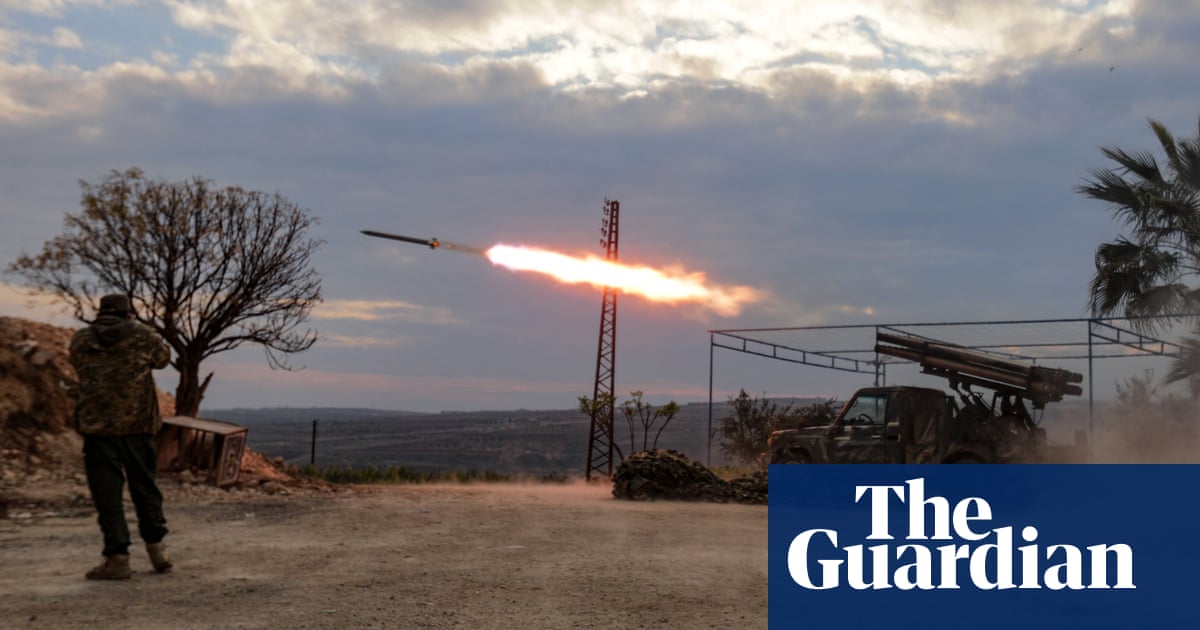Islamist insurgents entered the Syrian city of Hama in a battle to seize a vital location on the road to Damascus, marking the latest challenge to Bashar al-Assad’s control of the country.
Militants led by the group Hayat Tahrir al-Sham (HTS) entered the city from the east on Thursday after surrounding it during five days of fighting with forces loyal to Assad.
Video circulating online suggested that the insurgents had captured a military airport outside Hama, and released prisoners held in a fearsome state detention facility.
As night fell, militant representatives said they had “fully established control over the city of Hama,” and called on police and militias in the city to defect.
“This victory will be without revenge and merciful,” said the leader of HTS, Abu Mohammed al-Jolani, in a message to the people of Hama.
The Syrian defence ministry initially denied that insurgents had enteredHama, calling its defensive lines “impregnable”. But as fighting intensified and drew closer to the city centre, the Syrian army said it had withdrawn, redeploying its forces “to preserve the lives of civilians and not to involve the people of Hama city in these battles”.
Positioned on a highway that runs down the western side of Syria towards the capital, Damascus, Hama was the site of mass uprisings against Assad in 2011, and then fierce battles when opposition forces attempted and failed to take control of the city in the ensuing civil war.
Hama is also the site of a notorious 1982 massacre, when forces loyal to former president Hafez al-Assad besieged the town to prevent an uprising led by Sunni Muslim opponents of his rule.
The sweeping offensive led by HTS has resulted in Assad losing control of Syria’s second largest city, Aleppo, as well as swaths of the northwest of the country. The UN’s World Food Programme said the escalation has displaced more than 280,000 people, “adding to years of suffering.”
The sudden losses appear to have unsettled Assad’s longtime backers in Moscow and Tehran, with Russian forces consumed with their invasion of Ukraine and Iran concerned about its forces being targeted by Israeli airstrikes on Syrian territory, which have increased in the last year.
The Kremlin spokesperson, Dmitry Peskov, told reporters that Moscow was “closely monitoring”, events in Syria. “Depending on the assessment of the situation, we will be able to talk about the degree of assistance that is needed by the Syrian authorities to cope with the militants and eliminate this threat,” he said.
Gregory Waters, an analyst of the Syrian army with the Middle East Institute, said a combination of low morale, low pay, corruption and dysfunction within the chain of command had contributed to the sudden rout of government forces from areas they had controlled for years.
The Syrian army, he said, was “completely unprepared”, for the insurgent offensive.
Amid reports of rising desertions from the Syrian army or fighters fleeing their positions, Assad issued a decree raising salaries for military personnel by 50% earlier this week. The Syrian president appeared to be seeking to muster a counter-offensive as the fighting drew closer to the capital.
Military support from Iran and Russia has been limited when compared with previous iterations of the conflict in Syria, said Waters.
“I think it’s hard to see a scenario where forces loyal to the regime in Damascus can regain momentum,” he said. “Even if the Russians and Iranian or Iranian-backed forces get more involved, they’re still limited by their own wars. It feels unlikely to reach the level of support we’ve seen previously.”

